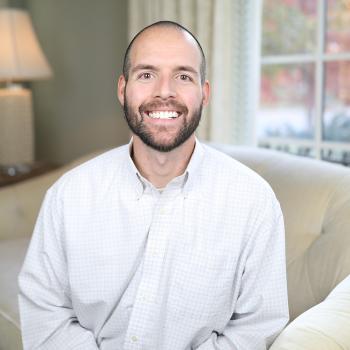By Bruce G. Epperly
 Thirty years ago on July 5, our only son Matt was born. Today, as I ponder his birth and his journey from infancy to adulthood, and now to becoming a father himself in August, I am filled with gratitude. Meister Eckhart once noted that if the only prayer you can make is "thank you," that will be enough. And, I agree. Gratitude is the virtue of interdependence and connection, reminding us that what is best in life is a gift, not something we originated on our own and by ourselves but the result of the interplay of our creativity and the gift of life mediated through parents, friends, the environment, culture, our nation, and the divine who moves through all things.
Thirty years ago on July 5, our only son Matt was born. Today, as I ponder his birth and his journey from infancy to adulthood, and now to becoming a father himself in August, I am filled with gratitude. Meister Eckhart once noted that if the only prayer you can make is "thank you," that will be enough. And, I agree. Gratitude is the virtue of interdependence and connection, reminding us that what is best in life is a gift, not something we originated on our own and by ourselves but the result of the interplay of our creativity and the gift of life mediated through parents, friends, the environment, culture, our nation, and the divine who moves through all things.
While gratitude is an all-season spiritual practice, it especially suits the easy-going spirit of summer since the primary requirement for gratitude is acknowledgement of the giftedness of life and those whose love and sacrifice has shaped our lives.
In the Baptist church of my youth, we often sang:
Count your blessings
Name them one by one
And it will surprise you
What the Lord has done.
Count your blessings
Name them one by one
Count your blessings
See what God hath done.
You don't have to do anything special to practice thanksgiving -- simply pause and notice the gifts of life as a prelude to saying "thank you." Or as the hymn says, "Count your blessings."
A pastor I know tells the story of one of his congregants, a woman in her eighties, who takes a walk through her neighborhood every day. In the course of her slow but steady half-hour walk, she gives thanks to God for all the blessings of life. Her life has been, like most of ours, filled with joy and sorrow; she's a widow, she's struggled with aging, and the death of friends. But, in the course of her walks, she's never run out of things for which to be thankful.
Thanksgiving is a way of relating to the world, both internally in our recognition of the giftedness of life and our dependence upon others and relationally in our willingness to say "thank you" to those who have made a difference or are making a difference in our lives.
Periodically, I drop a note to a teacher or mentor, thanking them for their impact of their life on mine. I make it a point to say "thank you" to store clerks, first responders, and colleagues at work. Your whole attitude toward life changes, even in challenging times, when you live by gratitude.
In his spiritual journal Markings, Dag Hammarskjöld notes:
For all that has been -- thanks!
For all that shall be -- yes!
Hammarskjöld's words have been a motto for me: they remind me that openness to the future is grounded in gratitude for the past in both its joy and ambiguity.
Simple acts of gratitude involve the interplay of contemplation and action. Here are a few spiritual practices that will deepen your sense of gratitude and connection with life. First, take a few minutes as the day begins to give thanks for the gift of life. Visualize the persons or situations for which you are thankful today as you ask God to give you a spirit of thanksgiving. Second, in the course of the day, make it a point to say "thank you" to persons with whom you interact. Third, think of one person who has made a difference in your life: if he or she is still living, take a moment to make a call or write a note. If they are deceased, take time to thank a relative or God for their life. Fourth, as the day ends, look back at the events of your day, giving thanks for goodness of the day and for God's presence in your life. In the course of the day, you may choose, in the spirit of the woman I mentioned earlier in this essay, to take a gratitude walk as a creative spiritual discipline.
And, as you live by gratitude for the wonder of life, don't forget to give thanks for yourself. Take time to thank God for the wonder of your being and your unique life. With Hammarskjöld remember:
For all that has been -- thanks!
For all that shall be -- yes!
7/12/2010 4:00:00 AM





